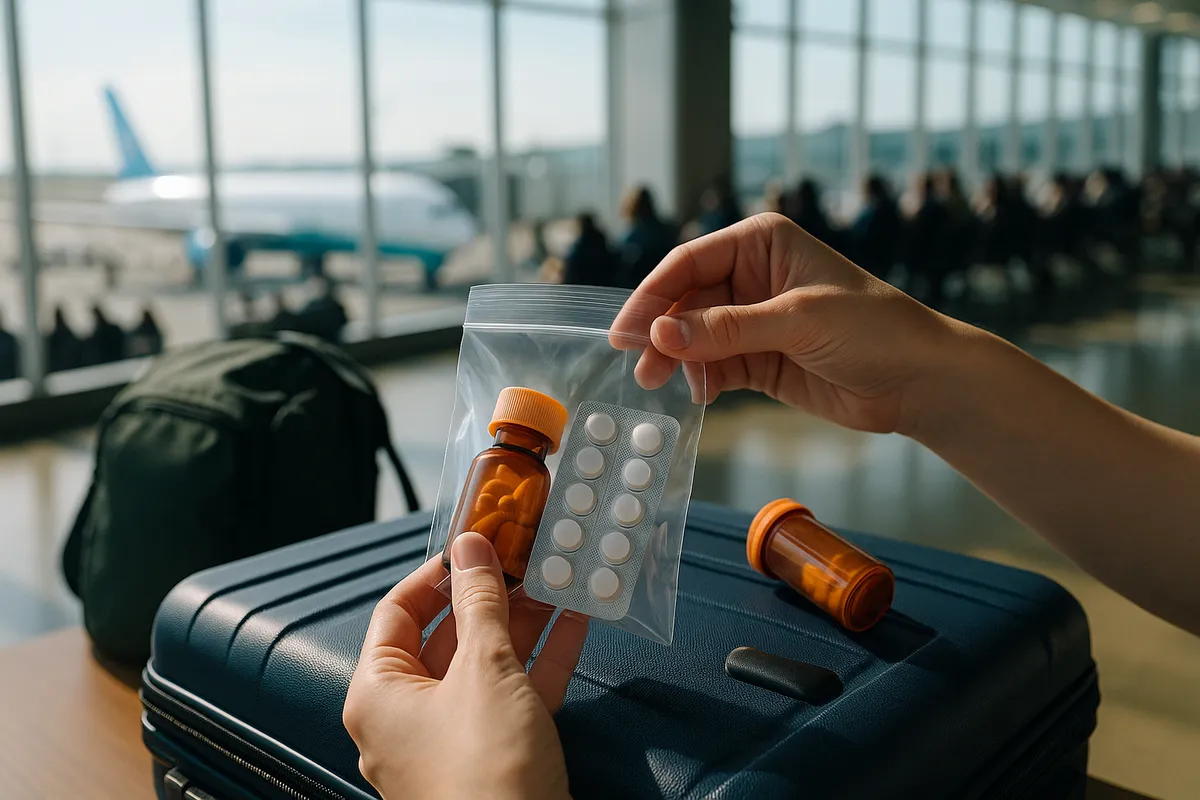Experience in avoiding food allergies when eating foreign food
- Monday, Jun 09, 2025, 15:26 (GMT+7)
Experience in avoiding food allergies when eating foreign food
Food allergies to unfamiliar ingredients are a silent risk that can easily ruin an otherwise perfect trip. While exploring a new destination, the excitement of trying local dishes often leads travelers to overlook caution. Yet a single ingredient like peanuts, seafood, soy, or even fermented spices can trigger serious allergic reactions if not identified and avoided properly. Being prepared before the journey and knowing how to respond to early symptoms are the keys to staying healthy and enjoying the adventure to the fullest.
Many travelers have shared experiences of allergic reactions ranging from mild to severe after trying local dishes. Some developed hives all over their body after eating raw fish salad in central Vietnam. Others experienced swollen lips and an itchy throat due to a dipping sauce made with dried shrimp. One even required emergency treatment abroad after unknowingly consuming soba noodles, which contain buckwheat, a common allergen unfamiliar to many.
A concerning factor is that not everyone is fully aware of their own food sensitivities. Some reactions only occur after consuming large amounts, or when the body is fatigued and the immune system is weakened. There are cases where someone could tolerate seafood at home but experienced serious reactions elsewhere due to different preparation methods or unfamiliar ingredients. This shows that allergic responses are not solely about the food type but also the context and condition of the body.
To minimize risk, the first step before any trip is to review any past symptoms linked to food, even mild ones. Make detailed notes on your phone or a personal notebook, preferably in both your native language and English. This is particularly helpful when explaining dietary restrictions to locals. For trips abroad, learning key phrases like “I am allergic to peanuts” or “Does this contain shrimp?” can be lifesaving. Do not rely solely on translation apps, as even a small misinterpretation could lead to serious consequences.
One effective tip shared by seasoned travelers is to carry an allergy alert card, especially if the allergy involves high-risk items like peanuts, shellfish, milk, or gluten. This card should clearly state your allergies in the local language and be kept in your wallet, purse, or attached to your passport. In the event of unconsciousness or inability to communicate, this information can help others provide appropriate assistance.
For those with a history of severe allergic reactions, carrying antihistamines, corticosteroids, or auto-injectable epinephrine is essential. However, it's important to be aware that some countries have strict regulations on certain medications. Always carry a prescription and notify the airline if bringing injectable medication in carry-on luggage. Several travelers have reported being stopped at the airport for carrying unlabeled medical vials.
During the trip, trying food from local vendors or street markets is often unavoidable, especially for those who love authentic culinary experiences. However, it's vital to observe how food is prepared, check hygiene conditions, and be especially cautious with complex dishes like sauces, stews, or marinated items. Never hesitate to ask the vendor about ingredients or refuse a dish if uncertain. Many traditional eateries do not list all the components of a dish, especially hidden ones like fish sauce, shrimp paste, cashew oil, or soybean oil.
A lesser-known yet highly effective tactic is to test new dishes by taking very small bites. If you experience mild symptoms like an itchy throat, dry lips, or a tingling sensation, stop eating immediately and monitor your body closely. These minor symptoms are often early warning signs before a full allergic reaction develops. According to many travel forums, several people have avoided serious incidents simply by being attentive to these subtle signals.
For those with sensitive systems, it’s safer to stick to thoroughly cooked dishes instead of raw or fermented items like raw salads, fermented sausage, sushi, or kimchi. These items often involve raw ingredients that carry higher risks, especially when the digestive system is adjusting to a new environment. Additionally, avoid all-you-can-eat buffets of unclear origin, particularly those featuring raw seafood. When left out too long, proteins can degrade and trigger immune reactions more easily.
On longer journeys, many travelers bring along a few familiar dry foods or snacks as a precaution in case safe local options are unavailable. Rice crackers, vegetarian instant noodles, protein bars, and boxed plant-based milk are easy to carry and store. These not only provide peace of mind but also help the body gradually adapt to new foods during the first few days.
It's also important to differentiate between food allergies and food poisoning. Allergic reactions tend to occur rapidly, often within minutes, and are not related to food hygiene. Poisoning usually affects multiple people who consumed the same dish, whereas allergic reactions typically affect only one person. So even if a dish looks clean, it doesn’t mean it’s safe for everyone.
For travelers with known allergies who still want to enjoy local food, choose widely-reviewed specialties that have been tried and verified by others. Avoid sampling unfamiliar or extreme dishes on the first day. The body needs time to adjust and is more likely to react when tired, jet-lagged, or stressed.
One recommended habit by health experts is to keep a food diary during your trip. This not only helps with portion control but also supports accurate diagnosis in case of a reaction. Sometimes, it’s a dessert with raw eggs or a smoothie made with condensed milk that causes unexpected symptoms.
Another practical tip is to research in advance how to handle allergies at your destination. Save local emergency numbers, nearby hospitals, and learn basic medical terms in the local language. Many people waste valuable time during a crisis simply because they don’t know who to contact or how to explain their condition. This is especially important when traveling to remote areas, islands, or countries that do not use English.
Food allergies may not be common for every traveler, but when they happen, the consequences can be serious. Beyond health risks, they can completely derail your itinerary. Being well-prepared, informed, and alert is a must-have part of any travel plan. When you understand your body and take proactive steps, your journey becomes not only safer but also smoother and far more enjoyable.

 CHECKIN.VN
CHECKIN.VN








Share on